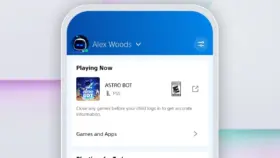While gaming subscription services such as Game Pass have become mainstays of the gaming industry, several prominent figures have recently drawn attention to issues they can cause for smaller developers.
Former Bethesda executive Pete Hines began the conversation labelling subscription services as “worth jack s***” if the game developers who create content for them are not properly supported.”
He suggested that while some games can find enormous success through the visibility and access brought by these services, others lose out massively due to the lack of sales.
Who Benefits From Game Pass-Esque Platforms?
If the subscription service is one that generates a lot of interest in audiences and makes a lot of money for the platform, it’s going to be considered a success.
However, if the end result is that the developers who are making smaller games that are featured on these services can’t continue to support themselves, the model might be an unsustainable one.
This was the stance of ex-PlayStation head Shawn Layden, who chimed in on LinkedIn to express support for Hines’ remarks. Some have even pointed to Game Pass as a reason for why lay-offs have been so prominent in development studios.
The Inner Tensions
This remark in particular came from former vice president of Xbox Game Studios, Shannon Loftis, who spoke on LinkedIn about beyond random breakout stars of Game Pass, those who tend to fare better after release are those designed for long-term monetisation (live service games).
The inner tensions then presumably refer to struggles between deciding on the creative direction of the game, with developers knowing what they want to make against what they feel as though might be most financially lucrative.
The Popularity of Game Pass
In an age of streaming, however, it is difficult suggest putting the genie back in the bottle.
Many players might prefer these types of services to buying new games because it allows them to try several games for a much lower price, while often extending to new releases that land on Game Pass (or other services) on day one.
It’s uncertain how sustainable these models will be as time goes on, but if Pete Hines is correct, it might be that more effort needs to be made to safeguard developers from a potential loss that they might see due to their inclusion on such platforms.






